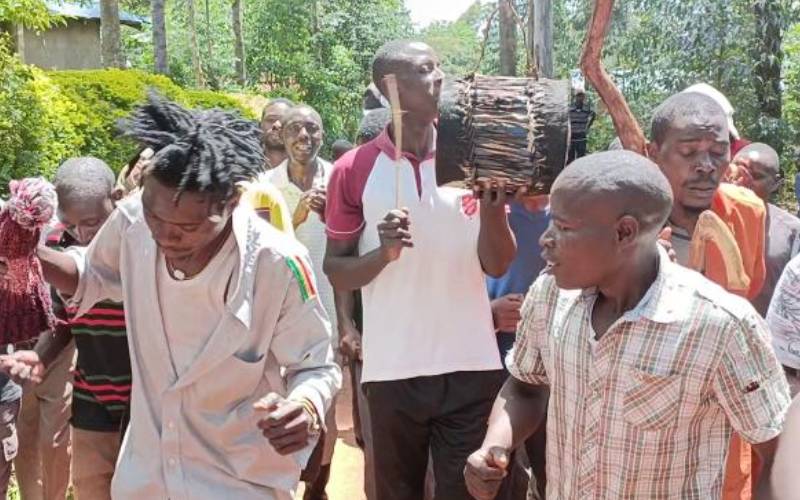×
The Standard e-Paper
Smart Minds Choose Us

Playing drums has defined the Maragoli and Banyore Luhya sub-tribes since time immemorial. Drums played a significant cultural role among the two sub-tribes living in Vihiga county.
Different drums would be played on diverse occasions, including social ceremonies and cultural rituals.